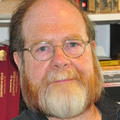
Irvin Cemil Schick
Doctorant.e
DoctorantInstitution de rattachement principal :Discipline : Histoire et Civilisations
Institution(s) de rattachement : EHESS
Coordonnées professionnelles
Obtenu son doctorat en mathématiques appliquées au Massachusetts Institute of Technology en 1989, et a passé une bonne partie de sa vie dans la recherche-développement. A changé de direction tard dans sa vie et poursuit actuellement un doctorat en mention «Histoire et civilisations» au CETOBaC.
Sa thèse concerne la légitimation de certaines pratiques ésotériques d’orthodoxie douteuse dans le monde musulman, en mettant un accent particulier sur l’Empire ottoman. Le Coran indique clairement son opposition à la pratique des sciences occultes par les simples mortels. Et pourtant, elles étaient largement pratiquées et nullement comme traditions marginales. Comment concilier l’aversion de la chariah pour la magie et la divination avec son acceptation répandue, de l’aube de l’islam au présent? Que de nombreux traités commencent par de longues listes de citations du Coran et des hadiths qui peuvent (souvent avec quelques efforts) être interprétées comme sanctionnantes des pratiques comme la physiognomonie et l’onirocritique suggèrent une voie pour telle légitimation, mais ce n’est qu’une des nombreuses façons dans lequel ils ont été historiquement justifiés. Une lecture attentive des traités du Moyen Âge à l’ère moderne révèle d’autres moyens, plus subtils, de légitimer les pratiques occultes.
Obtained a Ph.D. in Applied Mathematics from the Massachusetts Institute of Technology in 1989, and spent a good part of his life working in research and development and teaching technical subjects. Changed directions late in life and is now pursuing a doctorate in “History and Civilizations” at CETOBaC.
His thesis concerns the legitimation of certain esoteric practices of dubious orthodoxy in the Muslim World, with special emphasis on the Ottoman Empire. The Qur’an makes quite clear its opposition to the practice of occult sciences by ordinary mortals. And yet, they were practiced widely and not by any means as marginal traditions. How can the shari‘ah’s distaste for magic and divination be reconciled with the latter’s widespread acceptance, from the dawn of Islam to the present day? That many treatises begin with lengthy lists of citations from the Qur’an and the hadiths that can (often with some effort) be interpreted as sanctioning practices like physiognomy and oneirocriticism suggests a path for such legitimation, but this is only one of several ways in which they were historically justified. A careful reading of treatises from the Middle Ages to the modern era reveals other, more subtle means by which occult practices were legitimated.
Intérêts scientifiques / Scientific interests
- Pratiques de lecture et d’écriture dans le monde musulman / Reading and writing practices in the Muslim World
- Arts islamiques du livre / Islamic arts of the book
- Pratiques ésotérique et occultes dans le monde musulman / Esoteric and occult practices in the Muslim World
- Genre et sexualité dans le monde musulman / Gender and sexuality in the Muslim World
- Relations humain-animal dans le monde musulman / Human-animal relations in the Muslim World
Champs / Fields
- Empire ottoman / Ottoman Empire
- Turquie contemporaine / Contemporary Turkey
- Islam médiéval / Medieval Islam
Publications
Une liste occasionnellement mise à jour est accessible à l’adresse https://www.academia.edu/3637140/ An occasionally updated list is accessible athttps://www.academia.edu/3637140